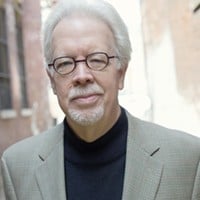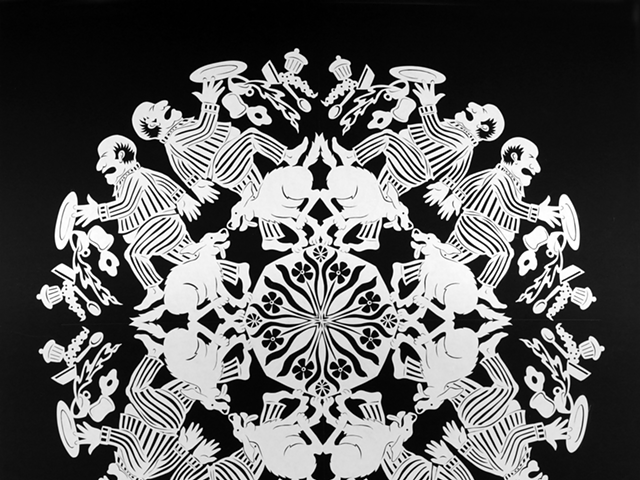When two great minds come together, you should expect a serious conversation. That’s what Freud’s Last Session is all about. It’s Sept. 3, 1939. The father of psychoanalysis, Dr. Sigmund Freud, has invited to his London flat a young scholar of literature and theology from Oxford, C. S. Lewis. Mark St. Germain’s play envisions their dialogue on the morning that England declared war on Germany, the commencement of World War II. Freud, an atheist dying of oral cancer, disputes the existence of God, while Lewis, who became an optimistic Christian after being a disbeliever as a young man, argues that God’s presence is inescapable. (A prolific author, Lewis later wrote The Chronicles of Narnia, a Christian allegory.)
That might sound like a whole lotta talking, and for 85 minutes, it is. But that doesn’t mean it’s boring, especially with two veteran actors, Bruce Cromer as loquacious and earnest Lewis and Barry Mulholland as embittered and cynical Freud, and outstanding direction by Michael Evan Haney.
There’s no real action other than several choking fits by Freud, who struggles with a painful prosthetic in his mouth. But as these intellectuals spar in Freud’s study (another meticulously detailed room designed by Brian c. Mehring), surrounded by orderly bookshelves and circling a desk lined with “gods and goddesses,” small statues from antiquity, Haney keeps the pace lively. The script provides moments of humor, especially Freud’s dry jokes, which Haney orchestrates to bring forward these men’s individual humanity.
Despite his interest in the clash of good and evil, Freud cannot see his way to a God of comfort and salvation. Lewis, who came to his beliefs intellectually, offers numerous arguments and evidence, but Freud (who committed suicide three weeks later rather than face a lingering death from cancer) seems unpersuaded. Their conversation is interrupted and punctuated by radio announcements of war and London air raid sirens, reminders that death is imminent.
More than once, Lewis’s sharp questioning stops Freud in his tracks. And it’s clear that Freud’s skepticism prompts Lewis to reexamine his newfound faith. Eventually, the pair finds common ground — not agreement, but shared emotions, including fear and longing. Freud’s Last Session is far from a rousing tale, buy my final analysis is that it’s both thoughtful and therapeutic.
FREUD’S LAST SESSION, presented by Ensemble Theatre Cincinnati, has been extended to Feb. 16.






